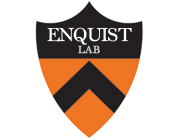Investigating the role of UL47 gene in Pseudorabies Virus in vitro infection
Publication Year
2017
Type
Thesis
Abstract
Pseudorabies virus (PRV) is an alpha herpesvirus native to pigs that infects the peripheral nervous system and establishes a latent infection, allowing for future reactivation. Infection by PRV in non-native species such as dog and cattle leads to the rabies-like symptoms of Aujezsky’s disease including: severe phantom itch, genital infection and death. Unlike with bovine herpesvirus (BoHV-1), where the UL47 gene product has been shown to down-regulate host cells’ anti-viral defenses, the mechanism by which PRV modulates host defense is not yet fully understood. In this study, we characterize the role of the PRV UL47 gene product, VP13/14, in epithelial cell infection, and we propose VP13/14 may play a role in reducing the IFN-β response in host cells. At late time points of in vitro PRV infection, phosphorylation of STAT1 is reduced. STAT1 is a transcription factor that triggers host defenses in response to IFN-β. While UL47 plays a role in infection and appears to effect phosphorylation of STAT1, its mechanism remains to be explained. A UL47 null virus and a C-terminal UL47-GFP fusion virus were reconstituted from bacterial artificial chromosomes and characterized. While showing otherwise normal protein expression of several major viral proteins, both viruses exhibited a small plaque phenotype. Furthermore, the UL47 null virus demonstrated a log deficiency in titer at 24 hours post infection.
http://arks.princeton.edu/ark:/88435/dsp01pz50gz71q
http://arks.princeton.edu/ark:/88435/dsp01pz50gz71q
Academic Department
Molecular Biology
Thesis Type
Undergraduate Senior Thesis

